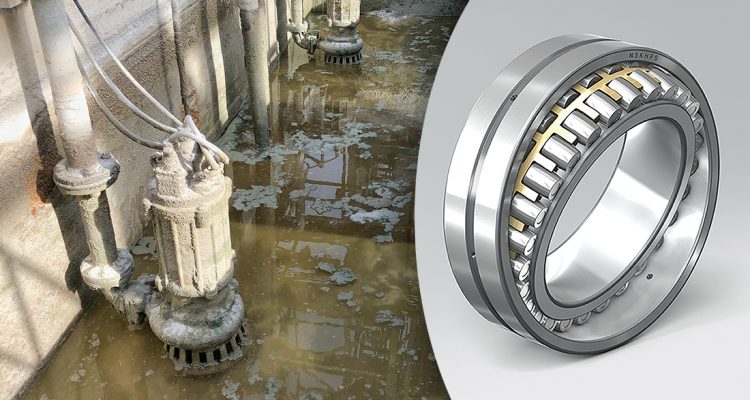Ground water acts as a major contributor to streams and rivers and plays a huge role in wetland habitats for Australia’s flora and fauna. Individuals have been using ground water for thousands of years – making it a major contributor in the use of drinking water and irrigation today.
Dewatering pump technology can gather and remove water in areas where it is not needed and can take it to plants where it can be recycled and distributed to state and local areas. Particularly, in areas such as building and construction projects, the waterfront, or places that receive regular heavy rainfall – dewatering is critical.
Australia has seen an increase in rainfall over the past few years in areas positioned in low lying land. Further to this, flood recovery projects have heightened the demand for effective dewatering pump solutions.
Dewatering pump manufacturing involves complex engineered parts, including motors, seals and bearings. As with any rotational moving equipment, bearings play a key role in the successful operation of dewatering pumps.
Nitin Verma, General Manager Sales for Industrial Solutions at NSK, says the type of bearings on pump applications can make a real difference to the pump’s performance.
“The type of bearing chosen has the ability to improve a pump’s performance, reliability and efficiency” he says, “which is why it’s generally best practice for manufacturers to consult with a trusted industrial solutions provider when determining the right bearings for a dewatering pump arrangement.”
Probably the most common type of dewatering pump is a centrifugal pump, be it an above ground or submersible type. An impeller attached to a shaft in the dewatering pump is supported by bearings and powered by a motor. The impeller creates thrust propelling the movement of water forward or upward. Generally rotational speeds on a pump impeller sit between 1500rpm and 3000rpm at 50Hz.
“Dewatering pump bearings must have the ability to handle axial and radial loads generated from the impellor. It is also critical that the bearings can handle variable forces as a result of the different pumped fluid viscosity” Nitin advises.
It should also not be forgotten that good seal performance is a requirement to avoid the ingress of water and contaminants that could cause corrosion.
From the NSK range, Nitin says suitable bearings for dewatering pump applications are Cylindrical Roller Bearings, Angular Contact Ball Bearings in both single and double row configuration and Deep Groove Ball Bearings.
“By consulting with a bearing expert and an industrial solutions provider such as NSK, they can assist with determining the right design to suit every pump application,” he says.
For advice and more information speak to Motion today.

